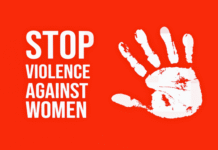Last week, deeply disturbing images of a brutally assaulted woman made rounds on social media in Eswatini, reigniting public concern around gender-based violence (GBV).
The woman, reportedly in her late 20s, shared photos on her Facebook account, tagging the man she alleges subjected her to repeated abuse over an extended period. The post came after several weeks of silence following her most recent assault—an act that could be seen as one of desperation, courage, or both.
Her decision to speak out online has sparked a wave of responses, ranging from support and solidarity to criticism and disbelief, highlighting the complex dynamics victims face when confronting abuse publicly.
| Eswatini Observer WhatsApp Channel
What struck me the most was not just the horror of the bruises and the injuries captured in the photos, but the subsequent reports that when she was contacted by the Royal Eswatini Police about laying charges — her response was hesitant.
She allegedly said she was unsure about opening a case against her assailant because he had arrogantly told her that, regardless of any charges she might press, he would never spend a night behind bars. That statement, if indeed made by the accused, speaks to something far more concerning than just personal arrogance, it highlights a profound and dangerous breakdown in public confidence in the justice system.
This is where the real issue begins. When an alleged perpetrator of gender-based violence speaks with confidence that he is above the law, the problem extends beyond individual acts of abuse. It reveals a systemic failure—a failure of deterrence, a failure of enforcement, and a failure of our legal framework to reflect the true gravity of these crimes.
Loopholes in the Law
If perpetrators feel encouraged by weak law enforcement responses, or if they find loopholes within the justice system that allow them to walk free, then we must honestly ask: have our laws kept up with the moral and social urgency of GBV?
Beyond the chilling testimony of survivors and the haunting images we occasionally see online, lies a greater problem — a legal framework that is proving ill-equipped to address the severity and frequency of GBV.
In cases of serious physical assault, especially those involving repeat offenders or threats to the survivor’s life, we must seriously consider instituting non-bailable provisions. The law must function as a shield for survivors, not as a sieve through which perpetrators casually and arrogantly walk away.
To be clear, bail exists to uphold the principle of ‘innocent until proven guilty’ and to prevent unnecessary detention. But in cases of proven repeat violence, intimidation of survivors, or clear medical evidence of serious assault, the safety of the victim and the public must take precedence over the liberty of the accused.
A non-bailable clause for such serious GBV offences would send a clear message—that society will not be complicit in allowing perpetrators to reoffend while hiding behind legal technicalities.
Name and Shame?
In considering solutions, some have argued for ‘naming and shaming’ perpetrators online as a deterrent.
While this approach has garnered support, I find it insufficient and, at times, counterproductive. Naming a perpetrator can offer momentary social condemnation — but for some, particularly those with inflated egos or violent control issues, it simply feeds into their delusions of dominance.
Their names trending in public discourse only reinforce their notoriety, and sadly, in a society where misogyny often finds silent endorsement, some even regard it as a badge of honour.
Instead of granting them recognition — however negative — we should strip them of it entirely. Can we treat GBV repeat offenders as people who are inhumane, whose faces and names do not deserve public recognition, mentioning, or remembrance? They must feel the pain and weight of a society disowning and rejecting them.
National GBV Register
Instead, I argue for something more structured and far-reaching — a national GBV offenders register.
Much like the sex offenders list in certain jurisdictions, this register would classify offenders based on the nature and frequency of their crimes.
-
Red: Dangerous and high-risk individuals
-
Orange: Long-term rehabilitation required
-
Yellow: Under monitored reintegration
-
Green: Default status for law-abiding citizens (a badge of honour)
This would allow government institutions, employers, and even civil society to appropriately gauge risk, integrity and credibility when engaging with individuals with a violent history.
The purpose of such a register is not merely to punish — but to protect, to warn, and to prevent. It must be integrated into national systems such as identity document applications, employment eligibility checks, driver’s license issuance and suspension, access to public office, and scholarship consideration.
Forfeiture of Privileges
A person convicted of a serious gender-based violence offence should not retain unrestricted access to societal privileges while their victims live in fear — often displaced, traumatised, and emotionally scarred for life.
We must cultivate a culture where criminal behaviour, particularly of a violent or predatory nature, carries lasting social consequences. Our legal framework requires a radical overhaul to reflect and enforce this reality.
Moreover, legislative reform must extend beyond punishment to prevention and accountability mechanisms.
Parliament should prioritise:
-
Reviewing the Criminal Procedure and Evidence Act to include non-bailable provisions for repeat or high-risk GBV cases.
-
Mandating psychosocial support for survivors.
-
Requiring offenders to undergo court-monitored rehabilitation.
A survivor-centred approach should be legally enshrined — not merely encouraged in lip service.
Some will argue that such laws could be abused or lead to false accusations. Indeed, every law carries the risk of misuse. But this is not a reason to do nothing — it is a reason to build stronger safeguards, not weaker responses.
When this finally happens, we must create an independent oversight body or tribunal that can review claims of wrongful listings on the GBV register and ensure due process for all accused individuals. Justice must never become vengeance — but neither should it be toothless.
Beyond the Judiciary
Our response must also go beyond the Judiciary. The Royal Eswatini Police Service, the Directorate of Public Prosecutions, and the Ministry of Justice must work hand-in-hand with civil society, shelters, hospitals, and churches.
Police officers must be trained in trauma-informed response, and social workers must be funded to provide aftercare. Survivors must not be burdened with proving their worthiness of justice — the state must act on their behalf.
We must also normalise a new culture of societal rejection of GBV.
This means perpetrators are not just dealt with by the courts, but by communities as well — employers, families, churches, and social circles must stop protecting abusers.
No more “he’s a good man when he’s not angry.”
No more covering up for brothers and uncles who abuse.
Silence is complicity, and complicity is violence by another name.
At its core, GBV is not just about physical abuse. It is about power and control — about someone believing they can inflict harm and face no consequences. The only way to disrupt this belief is through consequence, reforms in law, and community resolve.
Final Thoughts
The brutalisation of women and girls cannot continue as a social footnote or trending topic. The horror of images like those of Fisokuhle and of those before her and those still to come should not fade with the algorithm.
They must galvanise us into legislative action, cultural shifts, and policy reform that centres on protection, prevention, and accountability.
Until then, every slap, punch, and broken bone will be more than a personal tragedy. It will be a public indictment of a country still reluctant to treat GBV as the national emergency that it is.










